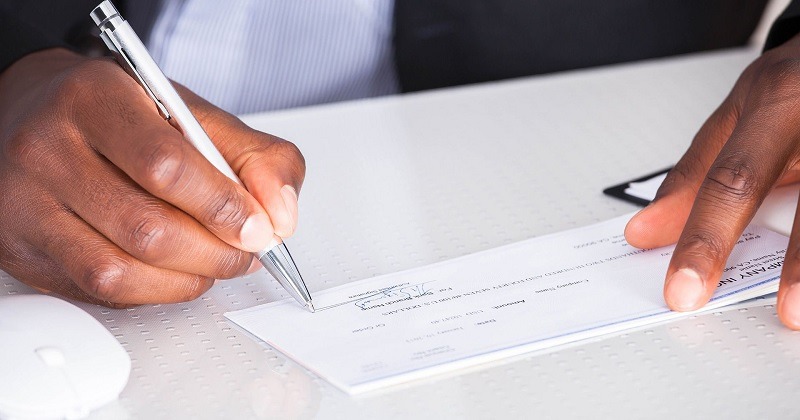 Cashier’s Checks & Money Orders are often confused because they have many similarities and even look similar. They both serve the same purpose of being used as a form of payment, however there are important differences that must be recognized before you use either.
Cashier’s Checks & Money Orders are often confused because they have many similarities and even look similar. They both serve the same purpose of being used as a form of payment, however there are important differences that must be recognized before you use either.
Some of the most important differences include the money limit, security, and availability. For those reason, cashier checks are seen as a more credible form of payment compared to money orders.
If you’re interested in learning about which one is best for you and your situation, keep reading! Interested in banking with Chase? See our list of Chase Coupons!
Cashier’s Check vs. Money Order
- Actual limits vary on the issuer, but money orders often have maximum limits around $700 or $1,000. On the other hand, cashier’s checks are available in much larger amounts (they’re commonly used for a down payment on a home, which can be hundreds of thousands of dollars or more).
- When it comes to obtaining a money order, you can just walk into any place that sells them which include grocery stores, pharmacies, post offices, convenience stores, and some banks/credit unions. However you can only receive a cashier’s check from banks & credit unions. And, most of the time you’ll already have to have an account with the bank.
- If you’re still debating whether it is best to use a cashier’s check or a money order then keep in mind that:
- It’s best to use a money order when:
- You need to mail a payment and want to avoid sending a check or cash.
- You keep a tight budget and want to prevent bouncing a check.
- You’re exchanging money with someone you don’t know well and would rather not provide them with a personal check.
- On the other hand, a cashier’s check is a better option when:
- The total payment amount exceeds the cap for a money order.
- You prefer the heightened security of a cashier’s check versus a money order.
Cashier’s Check vs. Money Order Similarities
- They both used as a form of payment.
- Whoever receives one of these instruments will deposit it just like a check, or they can attempt to cash the payment if their bank allows.
- If your cashier’s check or money order is stolen or lost, you are able to take steps in order to get your money back. Therefore they are both better options than carrying cash.
- Both are considered to be safer for recipients than personal checks because they’re guaranteed (the question is who guarantees the instrument), and therefore less likely to bounce. However, fake documents are common, so sellers need to verify legitimacy before sending anything of value.
- Both money orders and cashier checks can be forged/used in scams, so be careful no matter which one you are using.
- Money orders and cashier checks do not contain your checking account number. That makes them safer than personal checks, which are full of valuable information. Assuming you don’t know or trust whoever you’re paying, you might not want to reveal your full name, phone number, or home address.
- Although, both are generally accepted, not all businesses/individuals accept them, so we recommend that you contact the entity/individual to make sure your form of payment is acceptable.
| Cashier’s Check: | Money Order: |
|---|---|
| Cost up to $10 | Cost up to $5 |
| You can get them at financial institutions | You can get them at check-cashing locations, convenience stores, gas stations, drugstores, post offices, & retailers |
| Used for payments over $1,000 and for situations requiring more security | Used if you don’t have a checking account, mailed payments, to prevent bounced checks, to avoid using personal checks, to send money overseas |
| Accepted at banks, businesses, & individuals | Accepted at banks, businesses, & individuals |
 |
 |
Bottom Line
Above we have highlighted some important points to explain whether a Cashier’s Check or Money Order insurance is “better”.
In conclusion, they both serve the same purpose and that is being used as a form of payment, however when it comes down to deciding which one is “better” you need to see which one has the qualities that best suit your needs. The differences include the amount you’re paying, the availability of obtaining the cashier’s check or money order, and the security that you require.
In my opinion, they are both good options depending on your situation! Also, don’t forget to read our other articles which include, Money Transfers to Friends & Family, ACH vs Wire transfer, & Best Bank Bonuses.




Leave a Reply